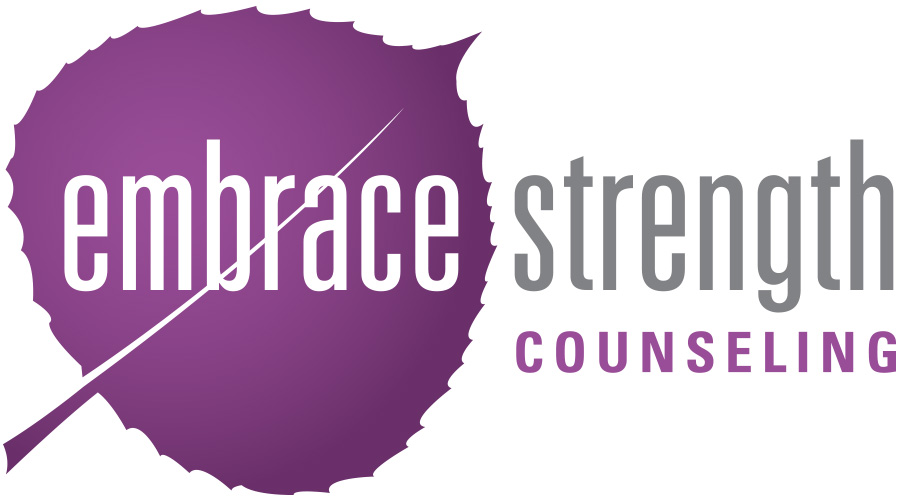
Postpartum Counseling
Is being a new parent leading you to feel lonely, depressed, anxious, or guilty?
- Do you feel overwhelmed by the responsibilities of parenthood?
- Are you so busy taking care of others that you do not have time to take care of yourself?
- Is having a child causing you more stress than you expected?
- Are you drowning in expectations (from yourself and others)?
- Do you feel unhappy with your postpartum body? Are you restricting food, binging and purging, pumping, or compulsively exercising to lose weight or manage your feelings?
Becoming a parent is not easy! Our lives change dramatically when we bring a child into this world. In combination with hormonal changes, sleep deprivation, and societal pressure, the postpartum period can feel intensely challenging. You may feel like you just can’t keep up, or like what you are doing is never enough. It is common to grieve the life you lived before parenthood, or to have conflict arise in your relationships as you take on this new role. Many new parents also have difficulty with self-esteem, body image, and confidence during this time. No matter what you are feeling, it is important to know that you are not alone. Whether your child was born days ago or years ago, the struggles of parenthood are worth addressing.
There is a lot of pressure for mothers and new parents to put on a happy face after having a baby–whether it be from friends, family, society, or ourselves. Many people talk about the joys of parenting and the love that children can bring into our lives. However, it is not as common for people to openly discuss the feelings of pain, fear, and guilt that also commonly show up. This stigma often increases the shame and isolation that so many new parents experience.
If only you could show yourself compassion during this difficult season of your life and connect with someone in a safe and non-judgmental space, you could stop feeling so overwhelmed and alone. It is possible to feel more grounded so that you can be present for your child and for yourself. Postpartum counseling can help you get there.
Postpartum Mental Health Concerns are Not Your Fault
Postpartum mental health concerns are not a weakness or reflection of you or your love for your child. In fact, it is very common to struggle with your mental health during the postpartum period. Around one is seven women will develop postpartum depression (PPD)*, and up to 25% will develop postpartum anxiety (PPA)**. Although these issues are highly prevalent, many new parents suffer with postpartum symptoms in silence. Unfortunately, up to half of PPD cases go undiagnosed as a result of stigma*.
Eating disorders are also common during the postpartum period. One study found that 12.8% of postpartum women met criteria for an eating disorder.*** The weight gain and body changes that naturally occur during pregnancy and strong desire to lose weight postpartum can lead to eating disorder behaviors such as restricting food, binging and purging, compulsively over-exercising, and purging through pumping. Women who have a history of an eating disorder may be more likely to experience a relapse of their eating disorder and are at an increased risk of experiencing postpartum distress.***
There are several factors that contribute to postpartum distress including genetics and hormonal changes. For example, individuals with a family history of PPD are more likely to develop it themselves. Your body also experiences a dramatic drop in hormone levels (progesterone, estrogen, and hormones made in the thyroid gland) following childbirth, which can alter your mental health significantly.****
Some people are more at risk for developing postpartum distress than others. Common risk factors for postpartum mental health concerns include:
- Pre-existing mental health concerns (e.g. eating disorders, anxiety, or depression)
- Family history of mental health concerns
- Complications during pregnancy and birth trauma
- If your baby has health concerns or special needs
- Having twins, triplets, or multiple births
- Difficulty breastfeeding
- Weak support system
- Financial insecurity
- The pregnancy was unplanned or unwanted****
It is important to note that mothers are not the only ones who struggle with postpartum distress. It is common for fathers and parents of all genders to experience significant changes in their mental health as they adjust to this new role. Furthermore, it is possible to experience mental health concerns in early parenthood even if you did not become a parent via traditional childbirth. Individuals who become parents via adoption, surrogacy, or medical procedures can struggle with similar symptoms.
Postpartum Counseling Can Help You Feel Like Yourself Again
The therapists at Embrace Strength Counseling can help you reconnect with yourself and your baby. We strive to create a safe, non-judgmental environment where you can process the many different emotions and stressors that come along with being a new parent. No matter what your experience has been like so far, postpartum counseling can provide you with a space to feel heard and supported.
During session, our knowledgeable and compassionate therapists will provide you with tools and coping skills to help you take care of yourself amidst the challenges of postpartum life. Through our strengths-based approach, we work to empower you to communicate your needs and get the support you deserve. Whether you are looking for strategies for balancing work and parenthood, or wanting to work through relationship issues that have come up since having a child, we are here to help. At Embrace Strength, we are also uniquely-equipped to work with the intersection of eating disorders and postpartum distress. With training and experience in both areas, we are dedicated to helping you navigate this painful crossroad.
Our postpartum therapists incorporate a range of approaches including Acceptance and Commitment Therapy, Cognitive Behavioral Therapy, Dialectical Behavioral Therapy, and other mindfulness-based therapies. We are also available to connect you to other resources including support groups, physical therapists, dietitians, and psychiatrists.
It is possible to overcome postpartum depression, anxiety, and eating disorders! You are not alone on this journey. At Embrace Strength Counseling we are dedicated to helping new parents feel heard, understood, and supported.
Some Questions You May Still Have About Postpartum Counseling…
How do I tell the difference between PPD/PPA and ordinary new parent concerns?
It is healthy to experience a full range of emotions during the postpartum period. Yes, it is even healthy to feel sad, overwhelmed, and anxious at times. However, if you experience these emotions more often than not, and find that they are getting in the way of your daily functioning, you may be experiencing PPD or PPA.
Healthy experiences associated with the postpartum period:
- Small changes in appetite
- Fatigue
- Occasional sadness
- Occasional frustration with family, friends, and/or your partner
- Occasional anxiety and/or overwhelm
- Discomfort with the unfamiliarity of being a parent
- Feeling isolated at times but still motivated to leave the house and connect with others
- Occasional worries about child’s wellbeing and safety
- Physical recovery from act of childbirth
- Missing your life before baby
- Fears about being a parent (but able to process these fears with others)
Symptoms of PPD or PPA:
- No appetite or eating past fullness regularly
- Exhaustion even when getting enough sleep
- Depressed mood more days than not
- Intrusive thoughts and/or images of hurting your child or yourself
- Obsessive and repetitive thoughts that inhibit functioning
- Ongoing resentment towards family, friends, and/or your partner
- Anxious thoughts that get in the way of sleep and daily functioning
- Constantly criticizing yourself and feeling that you are not a good parent
- Feeling isolated and alone; disinterested in leaving the house or seeing other people
- Severe anxiety about being apart from your child
- Pain in your body unrelated to childbirth
- Frequently regretting becoming a parent
- Overwhelming fears that last for weeks and inhibit your ability to function
Regardless of whether your symptoms meet criteria for a diagnosis, you deserve help. Adjusting to being a new parent is always difficult, and we are here to help no matter where you may fall on this spectrum.
My child is no longer a newborn, but I am still struggling. Is this normal?
Society creates a lot of unrealistic expectations for mothers and new parents to quickly “snap back” to who they were before they had a baby. In reality, the postpartum period has no definitive end date, and can last for years. There is no shame in struggling even if your child is no longer a baby. The therapists at Embrace Strength are here to support you at every step of your child’s life.
This is not my first child, so why am I still struggling so much?
Every postpartum experience is different. It is normal to struggle with early parenthood even if you have done it before. In fact, you are up to 46 times more likely to experience PPD again if you experienced it with your first child.**** Give yourself a break, and remember that you are allowed to struggle with your mental health no matter how much experience you have as a parent.
Show Up for Yourself and Your Family With the Help of Postpartum Counseling
If you would like to schedule an appointment or find out more about how our team of eating disorder therapists can support you, please email us at info@embracestrengthcounseling.com or call us at 303.720.9424. We offer a free initial 20-minute phone consultation so we can answer any questions you may have and see if it’s a good fit. Our team has daytime and evening appointments available, in-person and virtually.
Sources:
*https://www.ncbi.nlm.nih.gov/books/NBK519070/
***https://www.mamamend.com/postpartum-health/eating-disorders-during-pregnancy-and-postpartum
